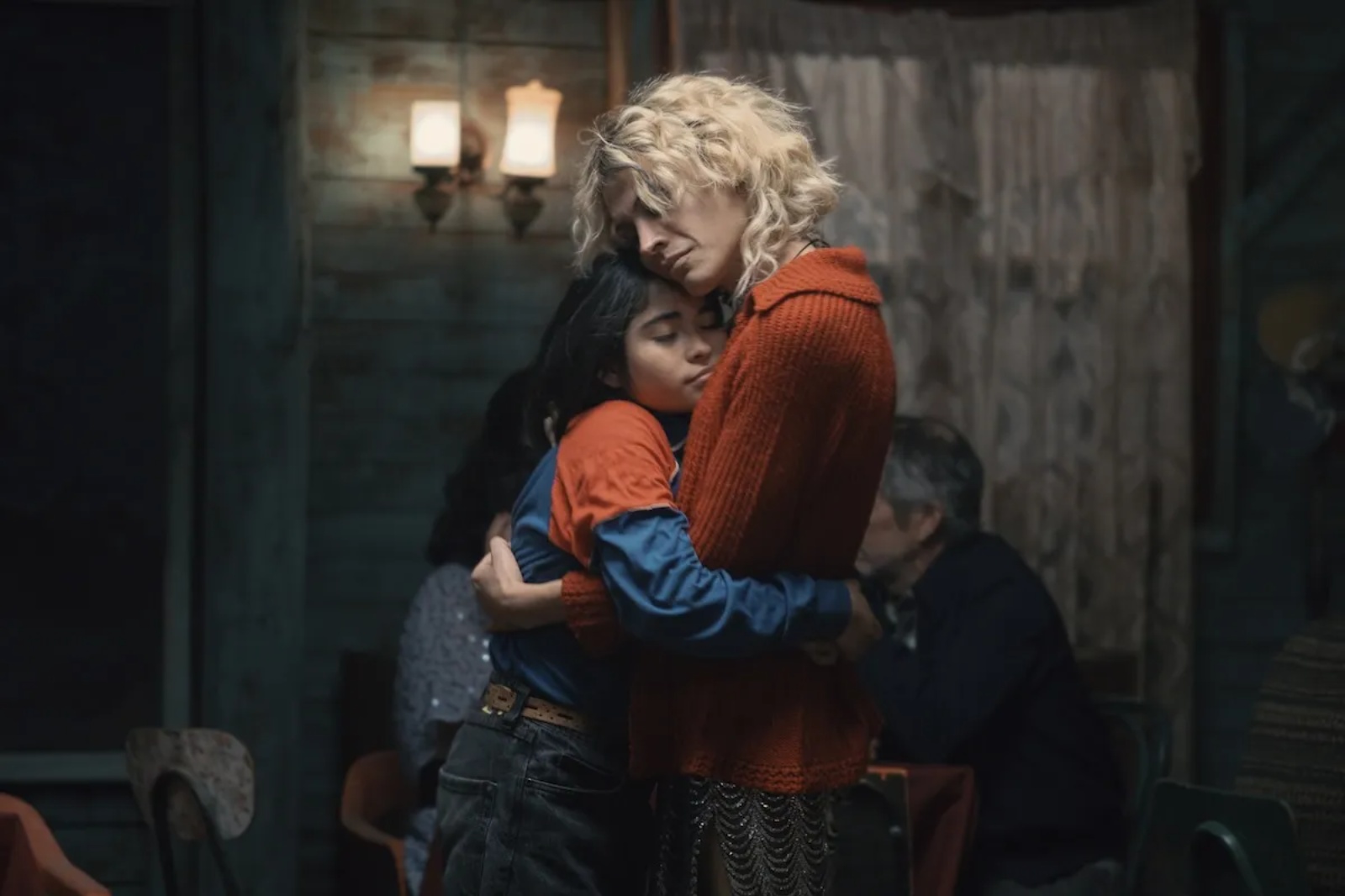Cannes Review: The Mysterious Gaze of the Flamingo is a Deeply Affecting Queer Drama
As reminders that ignorance, bigotry, and hate can literally kill, stories about the AIDS epidemic will always be relevant. The latest, beautiful example arrived courtesy of Chilean writer-director Diego Céspedes, whose feature debut The Mysterious Gaze of the Flamingo premiered in Cannes’ Un Certain Regard sidebar. Although the film may lack a narrative beat or […] The post Cannes Review: The Mysterious Gaze of the Flamingo is a Deeply Affecting Queer Drama first appeared on The Film Stage.


As reminders that ignorance, bigotry, and hate can literally kill, stories about the AIDS epidemic will always be relevant. The latest, beautiful example arrived courtesy of Chilean writer-director Diego Céspedes, whose feature debut The Mysterious Gaze of the Flamingo premiered in Cannes’ Un Certain Regard sidebar. Although the film may lack a narrative beat or two to fully take flight, it’s nonetheless a finely crafted, deeply affecting tribute to love and community––a piece of proudly, vitally queer art.
Set in 1982, the film takes place among a remote desert town in northern Chile. Not much goes on except at the town canteen, where miners mingle with a group of cross-dressing performers, including the charismatic Flamingo (played by Matías Catalán). Flamingo has a 12-year-old daughter, Lidia (Tamara Cortés), who’s bullied by the neighborhood boys because they claim her mother and other “perverts” from the canteen are responsible for the “Plague”––an unknown, incurable disease that has made people rather sick. Frightened and powerless, the townsfolk believe that the cross-dressers are spreading the Plague through their eyes. One night, a former lover of Flamingo disrupts festivities at the canteen, asking the equally sick star performer to rid him of this curse. This sparks a series of events which leave Lidia in the care of canteen owner Boa (Paula Dinamarca), who vows to protect her and the other girls of her establishment from outside attacks.
Not many of us might be able to picture what the life of gay men from rural Chile during the ’80s was like, but Céspedes does a wonderful job taking us back. In the film’s most impeccably realized first act, he recreates a shelter of love from around the time AIDS panic was starting to percolate on that side of the world. The desert set and flamboyant costumes are crafted with evocative, period-specific details. Even more importantly, he depicts a close-knit group of kindred souls who lived loudly and unapologetically, adopting one another as daughters, mothers, and sisters to form a chosen family before the concept had a name. When Lidia gets bullied, all her aunties follow Flamingo’s lead to go teach the boys a lesson. When things get too crazy out there, the troupe finds peace in a dance within the four walls they call home. Left with nothing to fight the virus or stigmatization, all they have is each other.
There’s a scene where a visibly ill and weary Flamingo tries to comfort Lidia and pulls her into a slow spin on the dancefloor while a sugary old song plays in the background. The image of two human beings joined in attempted solace, allowing themselves to temporarily forget their sorrows, is moving on such a visceral level it makes you wonder how anyone could possibly vilify what they see simply because the girl calls the man she so lovingly holds mother.
Crisis abounds in the second act, where the threat of homophobic violence becomes real and a town blinded by fear begins taking drastic measures against the cross-dressers and their dangerous eyes. While shot with great fluidity and accompanied by striking images, there’s some desire this were fleshed-out a bit more––one senses that the consequences of what happened to Flamingo are not sufficiently dealt-with, and a transition from the canteen being invaded to Boa finding the love of her life seems somewhat rushed. These slight bumps notwithstanding, Céspedes ends his film on a high, heartbreaking note. For Lidia, the start of a new life is right around the corner, but with the three little words she whispers in the final shot, you understand that those who are gone won’t ever be forgotten.
The Mysterious Gaze of the Flamingo looks and sounds wonderful. Kudos to DP Angello Faccini for capturing the warmth and vibrancy of the canteen sisterhood against a backdrop of barren landscape and blind hostility. Florencia Di Concilio’s score is just as effective in emphasizing the contrast between bonds formed out of love and the cold hate shown towards them. The aforementioned final shot is but one of many that pack an outsized emotional punch, thanks in part to their visual and aural design.
All three leads are excellent. Catalán brings the passionate, strong-willed Flamingo vividly to life. Dinamarca imbues the matriarch Boa with both endearing levity and steely dignity. As Lidia, the young witness of all the kindness and cruelty in a world she doesn’t understand, Cortés impresses with a carefully calibrated performance that betrays a deep understanding of her character.
When the queer way of life––otherness in general––is under perpetual threat and stories that sharpen our sense of empathy will never be untimely, the world always needs new queer filmmakers. With The Mysterious Gaze of the Flamingo, Céspedes has proven both the skills to assemble a film and an understanding of his story’s significance––you can feel the hot-blooded indignation behind every frame.
The Mysterious Gaze of the Flamingo premiered at the 2025 Cannes Film Festival.
The post Cannes Review: The Mysterious Gaze of the Flamingo is a Deeply Affecting Queer Drama first appeared on The Film Stage.
















































































